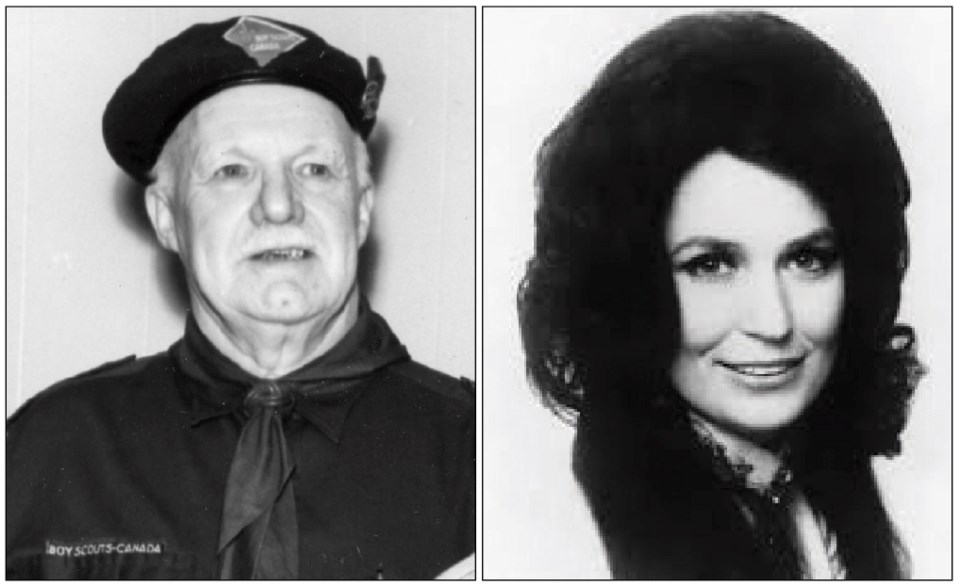Norman Burley (1903-85) was born in Neepawa, Man., and was brought up in Vancouver where his father owned the B.C. Fir and Cedar Company. This company provided the wood for the first St. Hilda’s Church, Rockwood Lodge and the Union Steamship Company’s dance pavilion.
Norman and his parents spent their summer holidays in Sechelt renting Rock Cottage, located on the Trail Bay waterfront, from Herbert Whitaker. This house is still standing on the waterfront, one of Sechelt’s oldest surviving buildings.
Norman spent two summers working for Herbert Whitaker in 1918 and 1919. He went to Royal Military College and Queen’s University in Kingston and then worked in the family lumber business in Vancouver. He married his first wife in 1926 and they had three daughters. After her death in 1957 Norman moved permanently to Sechelt where, in 1954, he had opened the B.C. Fir Company mill on Porpoise Bay.
He met his second wife in Sechelt and through her two local businessmen who had friends in the music business in Vancouver. In 1959 Norman bought shares along with several other investors in a new Vancouver-based record company, Zero.
With the investors backing its music, producers decided to record an unknown country and western singer, Loretta Lynn. Norman had either heard her sing in Bill’s Tavern in Blaine or had seen her perform on Buck Owen’s TV show from Tacoma. He and the other investors may also have heard her sing in a south Vancouver barn named The Chicken Coop where musicians and singers, encouraged by its owners, had been performing regularly for a number of years.
Loretta’s first record, I’m a Honky Tonk Girl, made in Los Angeles and released by the Zero Record Company, rose to number 14 on the charts. Her contract with the Zero Record Company can be seen in the Canadian Country Hall of Fame in Calgary. From Los Angeles she and her husband went to Nashville, and the rest is history.
Whether Norman Burley “discovered” Loretta Lynn or not, he was a prominent and community-minded citizen of Sechelt. He was elected to the Sechelt council in 1959 and 1960, served on Sechelt’s recreation committee and board of variance, was a director of the Coast’s Senior Housing Society (Greene Court), chairman of the Centennial committee in 1971 and was appointed Scout commissioner for the area in 1958 and vice-president of the Vancouver Coast Region in 1966. He had joined the Boy Scouts in 1912 and spent the rest of his life serving the organization in various positions.
No task was too small; he and Sam Dawe used to cut and water the grass weekly in Hackett Park for the ball players, and regularly clear out the drainage on Inlet Avenue and the gutters on buildings on Cowrie Street. In 1972 he was the first to receive Sechelt’s Good Citizen Award, a well-deserved honour.
– Ann Watson, Sechelt Community Archives, with thanks to Rob Howatson, Vancouver journalist



